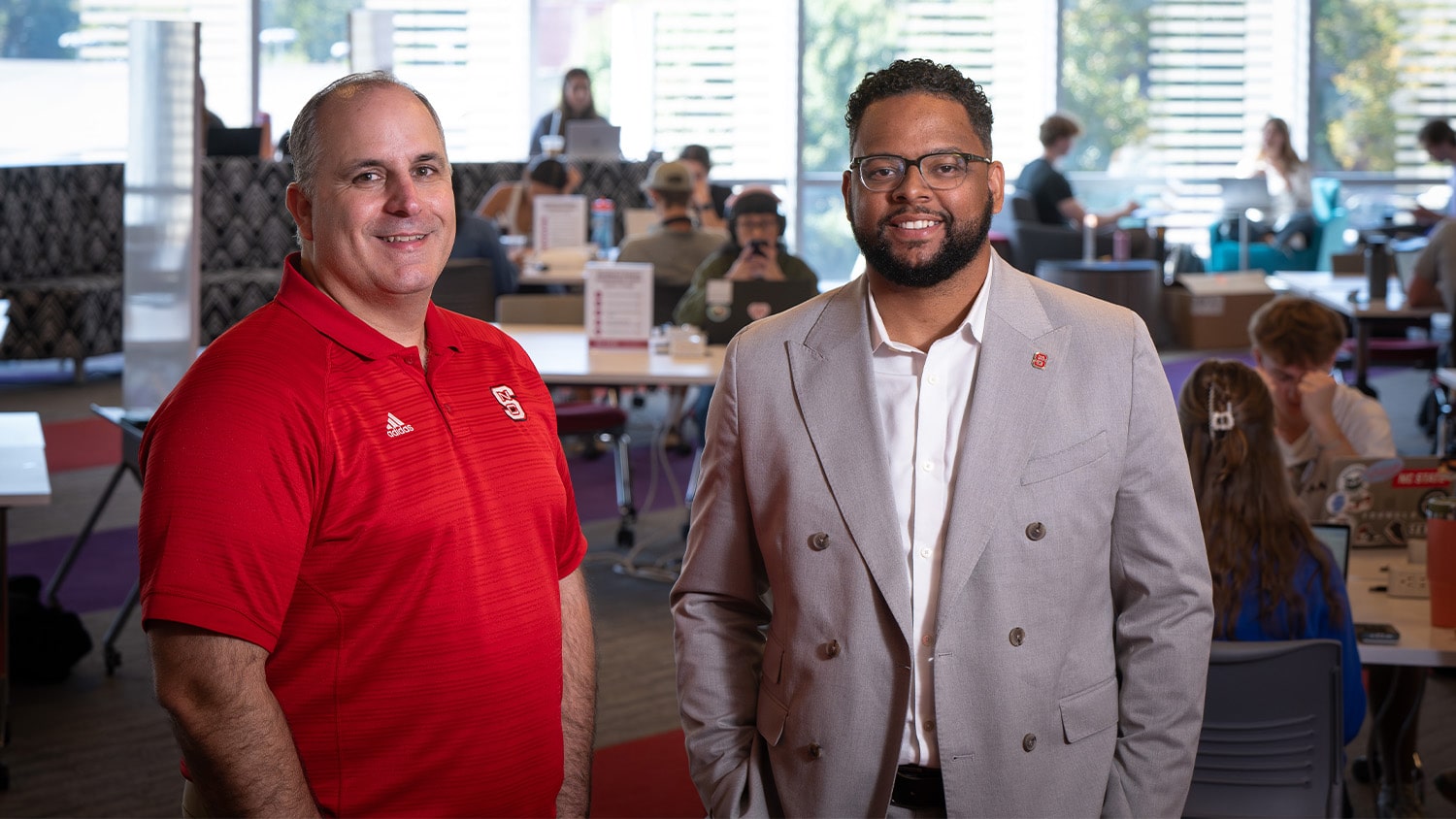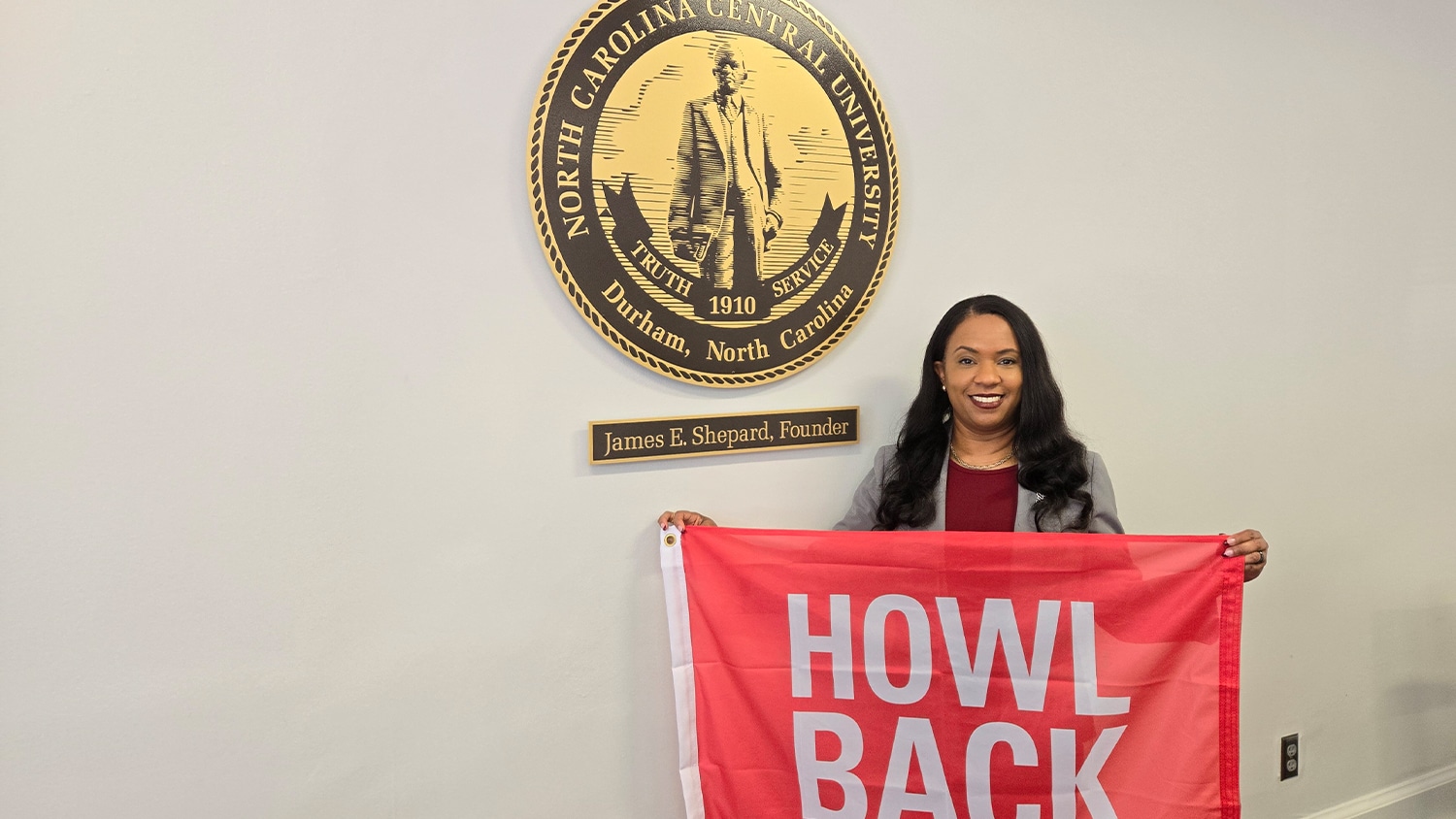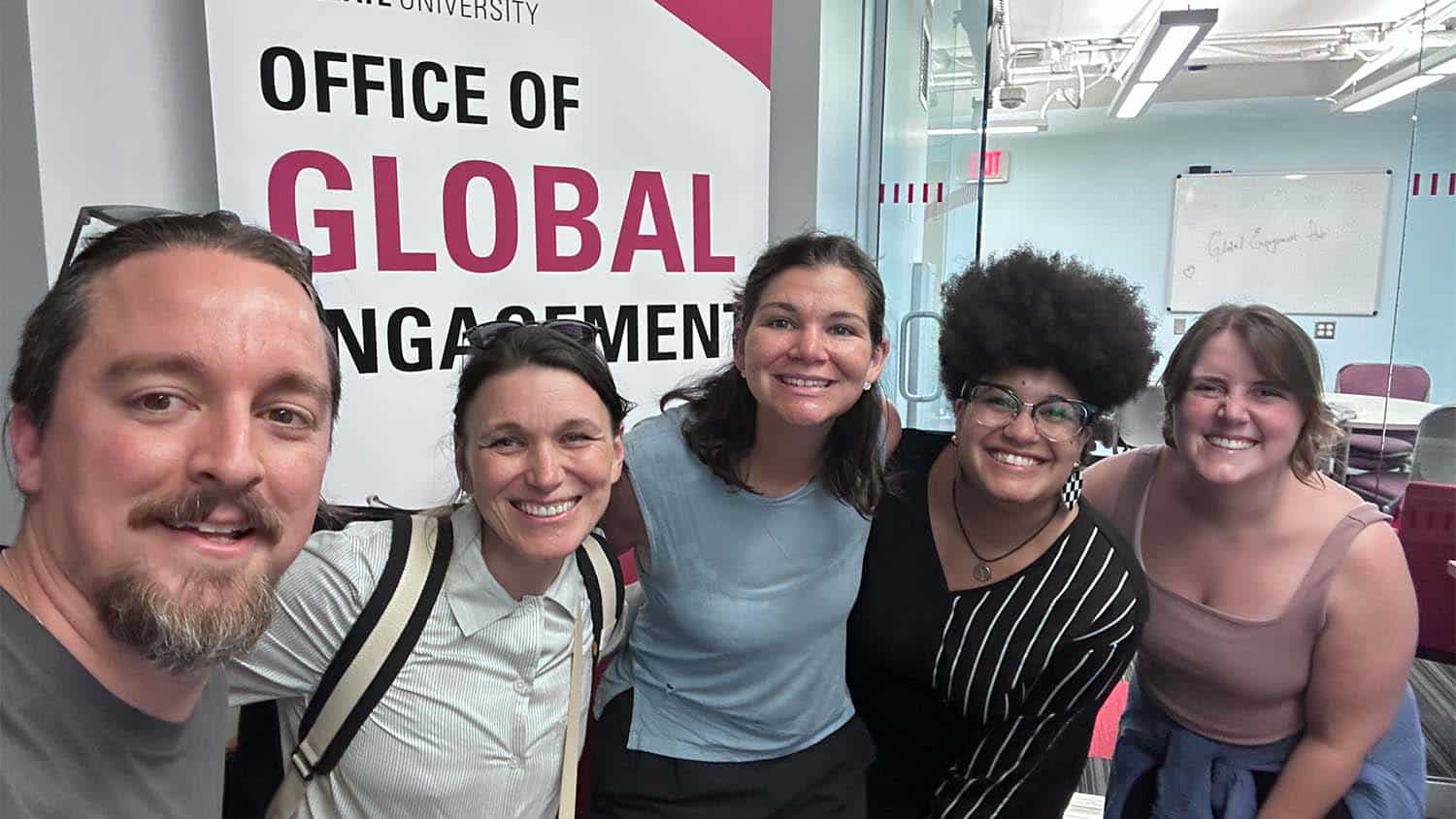The Cycle of Community
NC State program coordinator Lily Rivas plays a vital role in further cultivating the community that shaped her Wolfpack experience as a first-generation Ecuadorian American student.
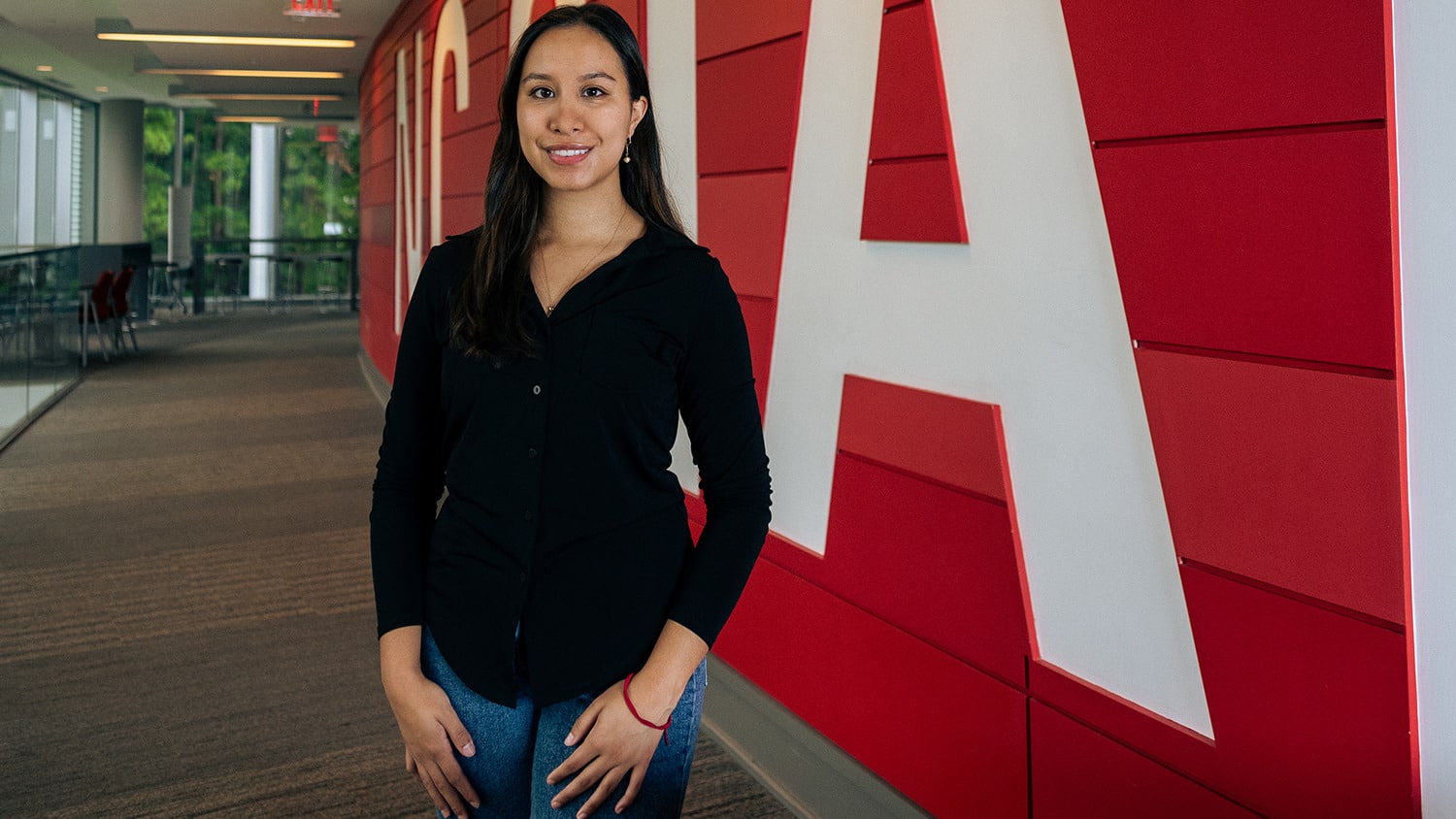
Lily Rivas first stepped foot on NC State’s campus — and in the city of Raleigh — during her summer orientation in 2017. Since her first visit nearly seven years ago, Rivas has remained a part of the Pack, and she now plays a vital role within the Office for Institutional Equity and Diversity (OIED) as a program coordinator for Inclusive Excellence and Strategic Practice (IESP).
She joined OIED in 2022. Her work centers on creating cultural competency education and training opportunities for the campus community to help ensure all members of the Wolfpack feel supported during their time at NC State.
“As a first-generation Latina student, it feels very important to do this work and talk about my community within NC State.”
Although she didn’t fully grasp what a complex feat it is to make a university more than 45,000 strong operate , Rivas quickly learned how she fit in. “My first professional experience in higher education took place here at NC State when I was working in New Student Programs, first as an orientation leader and then as a student coordinator,” says Rivas. “Ultimately, I knew I wanted to be in a collegiate environment after working directly with incoming students and with my own community.”
Rivas and her family immigrated from Ecuador to Charlotte, North Carolina, before she started elementary school — and college was always her goal. “My family has always valued education,” says Rivas. “Even moving here did not take away their love of knowledge.” That passion for knowledge continues to shape Rivas’ own educational journey. In fall 2023, Rivas started a master’s degree at NC State to explore higher education and further her own professional work on campus.
Developing Programming
Rivas conducts on-campus workshops for faculty and staff to highlight ways we can all create a more inclusive university community. Her latest workshop, like all others, began with heavy research on how to support Latinx students and staff. One of her goals is always to make the content accessible and easy to learn.
It can take up to three months for Rivas to launch a new workshop. It’s vital that she and the rest of the IESP team can fine-tune their presentations for various campus audiences. Most training sessions start by covering a topic’s terminology and basics, so everyone in attendance can get the most out of the workshop.
Each month, Rivas leads three or four workshops for NC State employees, whose feedback continues to reaffirm her commitment to her mission. “I’ve always been aware of my position within a predominantly white institution,” says Rivas. “As a first-generation Latina student, it feels very important to do this work and talk about my community within NC State.”
At the core of her work is equity and an understanding that everyone can benefit from spaces that are actively finding ways to include and support the whole university community. Rivas’ trainings often highlight how essential it is to represent all members of the Wolfpack to help create a more welcoming environment on campus.
“It’s been really fulfilling seeing how many people are interested in these trainings,” says Rivas. “I know I care, but it’s great seeing other people care enough to take these courses and implement what they’ve learned in their daily work.”
Commitment to Community
The turning point for Rivas’ own sense of belonging on campus took place during her sophomore year, after joining Latinx-serving organizations and gradually stepping into leadership roles in those spaces. Mi Familia and Lambda Pi Chi, a sorority also known as Latinas Promoviendo Comunidad, were instrumental in her professional development and in exploring her leadership abilities.
During the inaugural year of CAMINOS, a college readiness program, Rivas served as a mentor for the program’s first cohort. Rivas stresses that while programs like CAMINOS can help students get to NC State, the resources and spaces that serve them while they are here are key to students’ success.
For Rivas, that space was the Multicultural Student Affairs (MSA) suite. “MSA made me feel like I had a home on this campus,” says Rivas. “Going to that space pretty often, especially after COVID, was so crucial for me.”
NC State helped Rivas grow professionally in many ways, and now she helps NC State grow through her specialized content and commitment to our campus community. IESP and other OIED programs are developed with the university’s growing student body in mind — a population that hails from more than 40 U.S. states and 30 countries across the globe. Participating in IESP is one way faculty and staff can better equip themselves to support students from a variety of backgrounds.
Pulling Back the Curtain
While Rivas found it difficult to balance taking classes and finding community as a student, her experience was just practice for adjusting to working life as a young professional. Finding her footing was challenging the first few months, but after settling into her team and learning more about what life is like as an NC State employee, she sees the university with more perspective. It was especially surprising to learn the unique roles each of the university’s more than 7,000 employees play.
“As a former NC State student, working here is like finally having the curtain pulled back and seeing everything it takes,” says Rivas.
A unique part of Rivas’ role as program coordinator for IESP is just how much of her identity she taps into during daily tasks. And while that is an asset, it can also feel isolating and weigh heavy on her. She recounts her early experiences as an orientation leader, and the times she took on the extra responsibility of translating for families who spoke little English.
“As Latino professionals, we feel the burden of being the only one who can do it,” says Rivas.
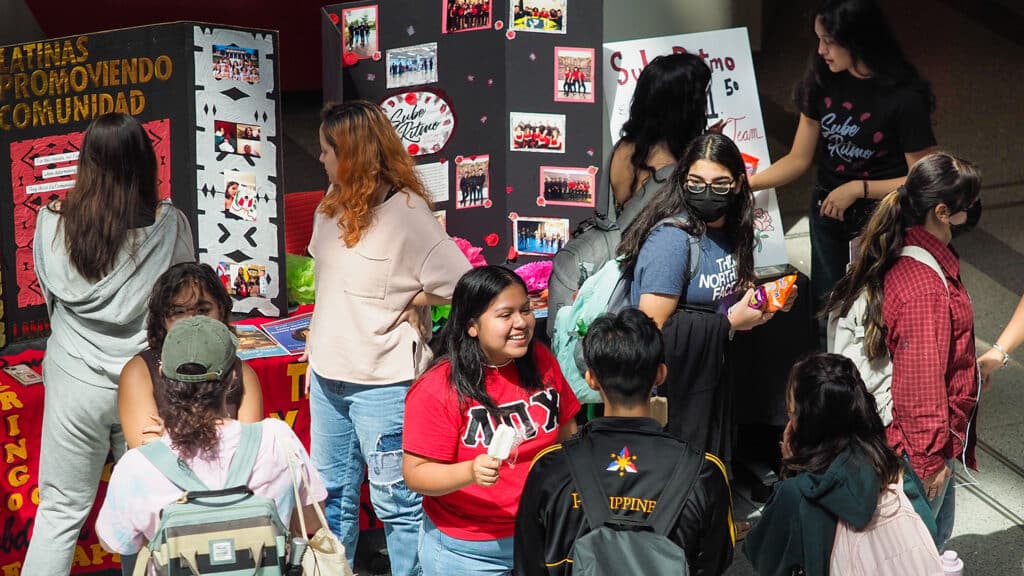
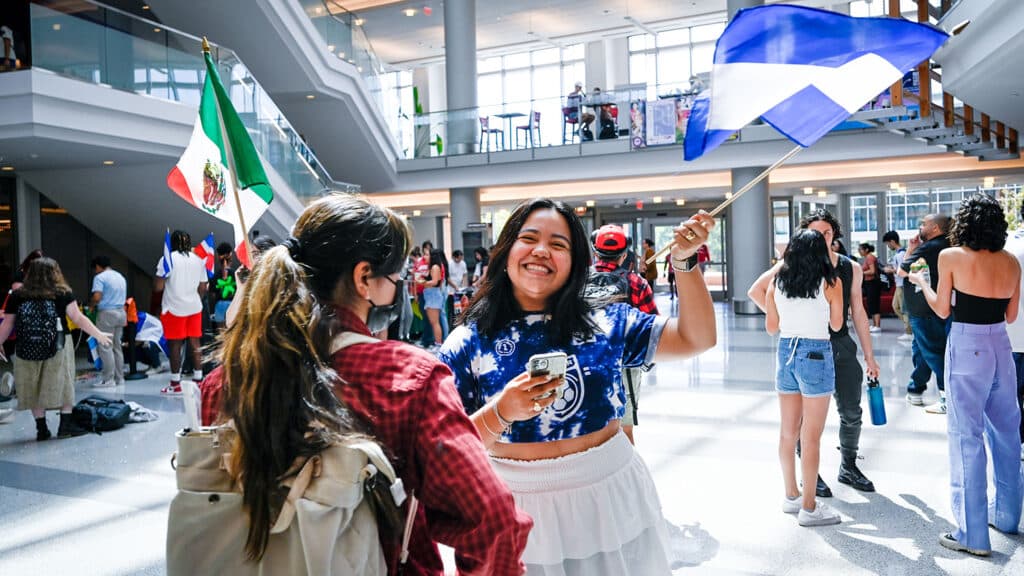
So, how does she take care of herself? Setting boundaries and using her downtime.
“It’s challenging work, and it’s challenged work,” says Rivas. “I try to avoid work after 6 p.m. and make sure I find time to relax in the evenings and during the weekends.”
While little actions like silencing work emails in the evening can ease the pressure of the day, the care and empathy her team has shown her over the course of her first year on the job is most notable. She adds, “My team has been instrumental in making me feel at home.”
Rivas highlights how crucial each team member is in cultivating our work culture at NC State and ensuring all feel included. From crafting unique workshops that support our various communities to reassuring a new teammate that you’re excited they’re here, the care we show our colleagues happens every day, in big — and little — ways.
Rivas adds, “My team never fails to remind me that I do belong here and that the work I do matters.”
- Categories:
